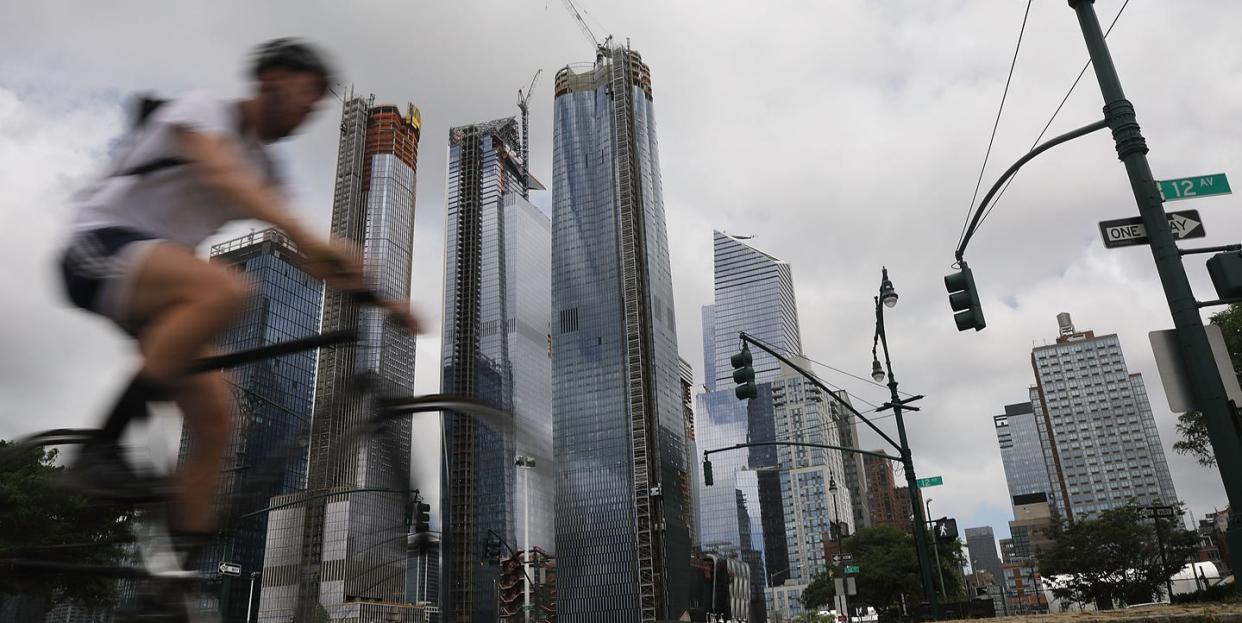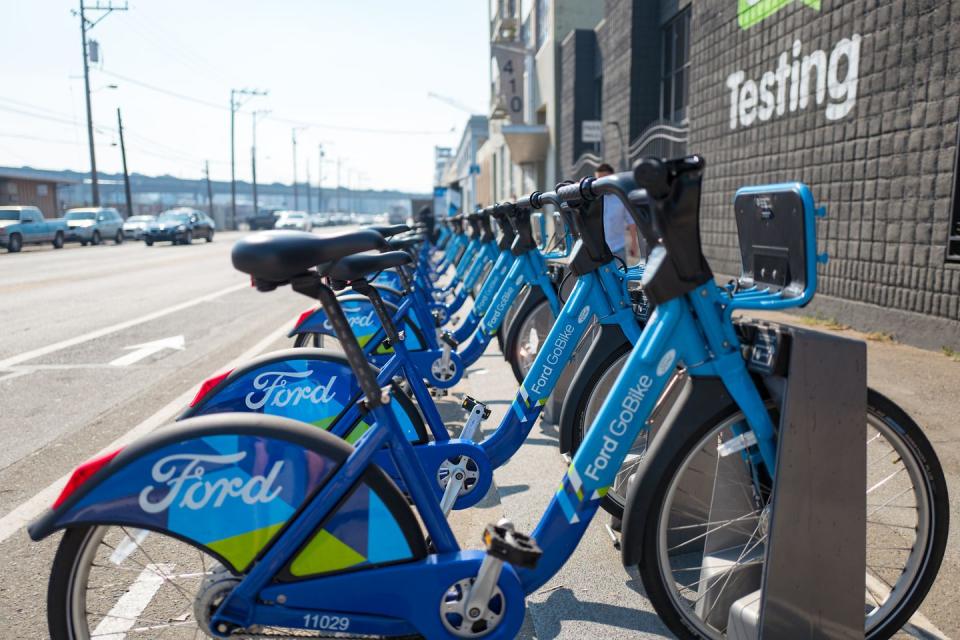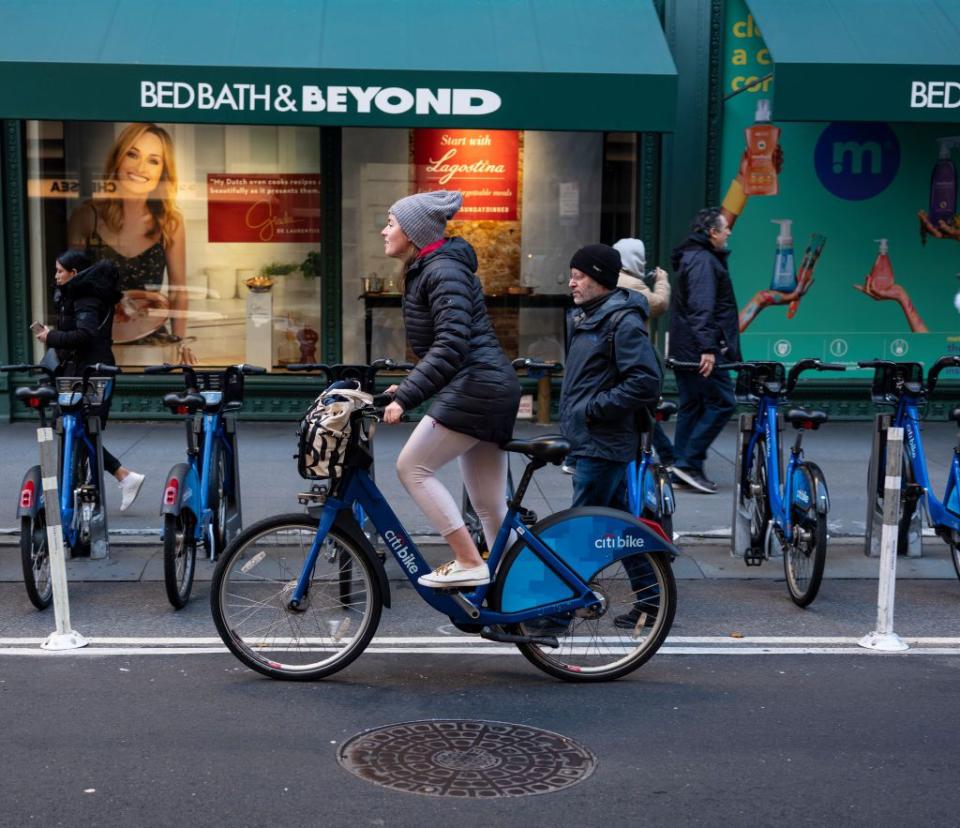Uber and Lyft Drivers Will Strike in These Cities on Wednesday. Here’s How You Can Bike to Work Instead.

Drivers for Uber, Lyft, and other ride-hailing apps have planned strikes in cities around the world on Wednesday.
The drivers will shut down their apps for anywhere from an hour to a full day, depending on the city, to demand better working conditions.
Commuters can take advantage of these bike share services to ride to work instead of hailing a car.
Hailing a car with an app might be a bit more difficult on Wednesday, as drivers for Uber, Lyft, and other ride-hailing companies have planned international strikes demanding better working conditions.
With Lyft having put out an IPO in March, and Uber preparing to go public this week, the drivers-classified as independent contractors-are pushing back against what they call excessive fees taken from their earnings and overall pay that comes out to less than a living wage.
The strike is expected last anywhere between an hour and a full day, depending on the city. Instead of crossing a picket line, or risking longer wait times, you can always hop on a bike to ride to work or otherwise get around-even if you don’t own one.
All six U.S. cities where drivers will log off, plus three where some drivers may strike unofficially, have some combination of bike share or private rentals to serve your riding needs. Here’s quick guide to the major bike share services provided in these cities. (Ironically, Lyft owns five of them since it acquired the bike share operator Motivate last year.)

Drivers in San Diego, Los Angeles, and Boston will turn off their apps for an entire 24 hours, starting on Wednesday at midnight, which means commutes both to and from work will be affected.
In L.A., you can take out either docked or dockless bikes through the city’s Metro Bike Share program. A 24-hour pass costs $5 for unlimited 30-minute rides, plus a $2 fee to lock the dockless bikes inside the service area. (Locking up outside the service area will incur a $20 fee.) Take note that you can snag a 30-day pass for just $1 right now, because why not keep riding? Outside of Metro Bike Share, you can also try a Jump, a dockless e-bike share service (owned, as it happens, by Uber), for 15 cents per minute within service areas in Santa Cruz and Santa Monica.
Officials in San Diego evicted the city’s bike share program for breach of contract this year. But Jump is still around, and as in L.A. it will run you 15 cents per minute. Bear in mind that locking up outside the Jump service area carries a $25 fee.
Over in Boston, you can use the city’s bike share system, BlueBikes, for either $2.50 per 30-minute ride or $10 for a 24-hour pass, which allows for unlimited two-hour rides. Dockless bikes will also be available to rent, in various cities throughout the Boston metro area, through Lime and Ant.
In Atlanta and San Francisco, drivers will turn off their apps for 12 hours starting at noon. San Francisco riders can use the city’s Ford GoBike system-one-way, 30-minute rides cost $2, while 24-hour passes go for $10. Jump also operates in San Francisco, but is a bit pricier than its Southern California counterparts: $2 for 30 minutes, and then 7 cents per minute after that.
Atlanta’s Relay Bike Share, meanwhile, offers both docked and dockless options. You can get a 30-minute ride for $3.50, and then pay 15 cents per minute after that. Parking a dockless bike costs $2 outside the official locking area within the system, and $20 for locking it outside the service area entirely. Jump bikes in ATL cost $1 to unlock and 10 cents per minute to ride.

In New York City, drivers will turn off their apps for only two hours, between 7 a.m. and 9 a.m. You could take the subway, but it’s supposed to be nice out, so consider Citi Bike instead. A single 30-minute ride costs $3, while 24-hour passes go for $12. Jump operates in New York as well, though it’s limited to the central Bronx and Staten Island’s eastern shore, and will run you $2 for 30 minutes and then 7 cents per minute after that. Lime’s increasingly rare dockless bikes are still kicking in Rockaway and Staten Island, costing 15 cents per minute after an initial $1 unlocking fee.
An organizer in Washington, D.C., told WAMU that drivers in that city aren’t “officially” striking, but still urged riders to not cross a picket line for the entire day. You can use the city’s Capital Bikeshare program, which charges $2 for a single 30-minute ride or $8 for a 24-hour pass. Jump also operates in D.C., for 15 cents per minute.
Chicago too will see an unofficial strike. Divvy bike share costs $3 for a single 30-minute ride and $15 for a 24-hour pass, which gets you unlimited three-hour rides.
Finally, drivers in Philadelphia, while not officially striking, will hold a rally at noon, and some will reportedly turn off their apps until 1:30 p.m. Riders can use Indego bike share, which costs $10 for an all-day pass that gets you unlimited 30-minute rides, and $4 per every 30 minutes after that.
('You Might Also Like',)

